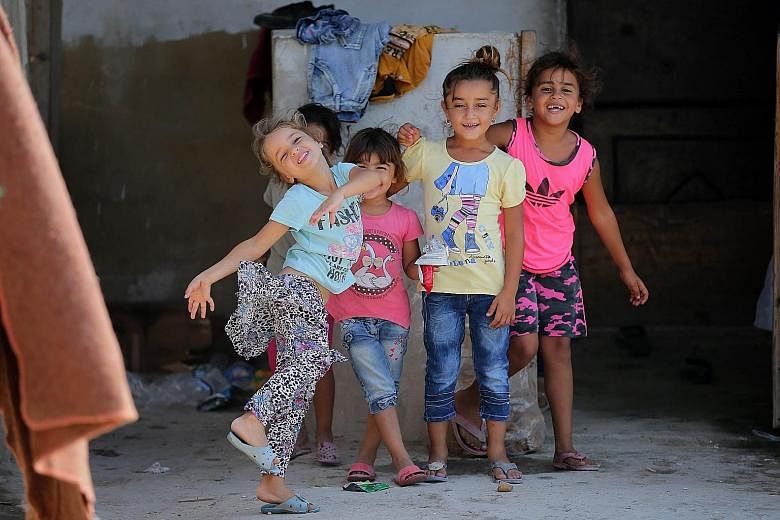AMMAN • More than 13 million children are being denied an education by Middle East conflicts, the United Nations said yesterday, warning that "the hopes of a generation" would be dashed if they cannot return to classrooms.
In a report on the impact of conflict on education in six countries and territories across the region, the UN's children fund, Unicef, said more than 8,850 schools were no longer usable because of violence.
It detailed cases of students and teachers coming under direct fire, classrooms used as makeshift bomb shelters and children having to cross active front lines just to take their exams.
"The destructive impact of conflict is being felt by children right across the region," said Mr Peter Salama, regional director for Unicef in the Middle East and North Africa.
"It is not just the physical damage being done to schools, but also the despair felt by a generation of schoolchildren who see their hopes and futures shattered."
Last year alone, Unicef documented 214 attacks on schools in Syria, Iraq, Libya, the Palestinian territories, Sudan and Yemen.
In Syria, it said education was paying a "massive price" after 41/2 years of conflict.
One in four schools has been closed since the conflict erupted, causing more than two million children to drop out and putting close to half a million in danger of losing their schooling.
In addition, more than 52,000 teachers have left their posts, saddling the country's crumbling education system with an acute skills shortage.
"Even those Syrian teachers who have ended up as refugees in other countries have faced obstacles which prevent them from working," the report said.
Unicef said one of the worst direct attacks on a school in the region came in Yemen, where 13 employees and four children were killed in an assault on a teachers' office in the western city of Amran.
"The killing, abduction and arbitrary arrest of students, teachers and education personnel have become commonplace" in the region, the report said.
In the embattled Gaza Strip, which saw a 50-day war last year between Hamas militants and Israel kill about 2,200 Palestinians and 73 on the Israeli side, the UN said at least 281 schools had been damaged and eight "completely destroyed".
"My children were injured in a school. They saw people injured, with missing hands or legs, with wounded faces and eyes," the report quoted mother of two Niveen in Gaza as saying. "They no longer see school as a safe place."
Unicef said that violence in Iraq, where pro-government forces are battling the Islamic State in Iraq and Syria jihadist group, has had a severe impact on the schooling of at least 950,000 children.
In Sudan, the agency said high numbers of internally displaced families fleeing violence in Darfur and South Kordofan states were putting untenable strain on the country's creaking school infrastructure.
Unicef called for better informal education services in countries affected by school closures and for donor nations to prioritise education funding throughout the Middle East.
"With more than 13 million children already driven from classrooms by conflict, it is no exaggeration to say that the education prospects of a generation of children are in the balance," it said.
AGENCE FRANCE-PRESSE

